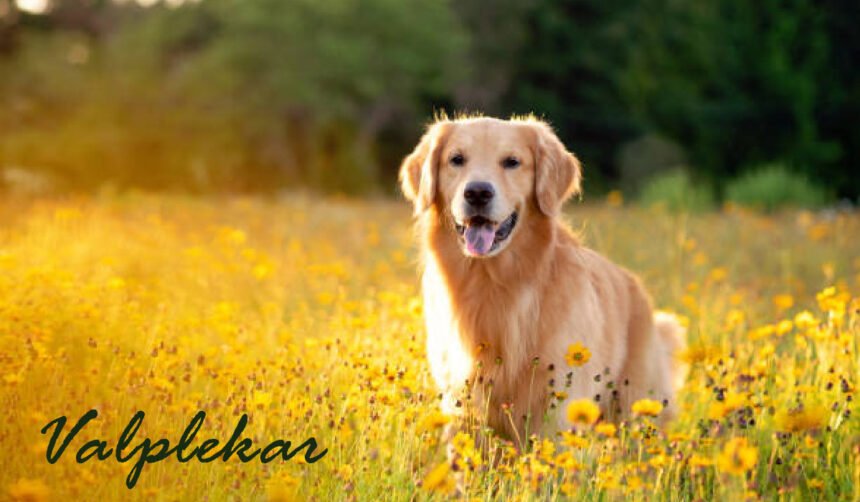Valplekar is a Swedish term meaning “puppy play” and also a unique Indian surname with cultural and historical significance. In puppy development, it refers to essential socialization and learning through play, while as a surname, it traces back to regional roots in Maharashtra, Goa, and Karnataka.
Introduction
Raising a puppy is one of life’s most rewarding experiences, filled with joy, affection, and a bond that deepens over time. Yet behind every wagging tail and playful bark lies a critical period of growth that demands much more than food, shelter, or obedience training. One of the most impactful—and often overlooked—aspects of this early development is “valplekar,” a term that originates from Sweden and translates to “puppy play.” But interestingly, Valplekar is not limited to dog development. It is also a culturally rich surname found in parts of India, particularly Maharashtra, Goa, and Karnataka.
The duality of the word reflects both playful beginnings and ancestral grounding. This article explores Valplekar in both senses: first as an essential phase in a puppy’s upbringing, and second, as a family name rooted in tradition, culture, and heritage. Whether you are a pet owner or a heritage enthusiast, understanding the full meaning of Valplekar adds depth to both your journey and identity.
Valplekar as Puppy Play – Definition and Meaning
In Swedish, the word “valp” means puppy, and “lekar” means games or play. Together, valplekar translates directly to “puppy play.” This is not just a cute term; it represents a scientifically-backed, emotionally crucial phase in a dog’s life. In Scandinavian puppy culture, valplekar isn’t simply about letting a puppy roam with toys—it refers to a holistic, thoughtful approach to development. Canine trainers and behaviorists across Europe have adopted valplekar as a standard to describe structured, unstructured, and interactive play that promotes mental, physical, and emotional growth. Through valplekar, puppies learn to navigate the world around them—building trust, mastering social cues, developing coordination, and reducing behavioral problems. Valplekar represents the heart of healthy puppyhood: active engagement, safe exploration, and joyful learning.
Why Valplekar Is Essential in Puppy Development
Puppies do not simply play for entertainment; they play to learn. The concept of valplekar is deeply tied to developmental milestones in a dog’s life. Like human children, puppies go through sensitive periods where their brain is highly receptive to experiences. It’s during this window—typically between 3 to 16 weeks—that valplekar shapes a dog’s future. Puppies that experience well-rounded, consistent play are more likely to grow into confident, balanced, and socially skilled adults. Whether they’re interacting with other dogs, discovering new textures in the garden, or learning to respond to their human’s tone of voice, these activities all fall under the umbrella of valplekar. This stage also minimizes the risk of fear-driven aggression, separation anxiety, and hyperactivity later on. Just 15–30 minutes of mindful, varied play each day can lay the foundation for a lifelong bond and a well-behaved companion.
Socialization and Communication
Play is the language of puppies. Through valplekar, they learn how to read body language, respect boundaries, and respond appropriately to social cues. When puppies engage with littermates or other dogs, they practice greetings, interpret tail wags and growls, and understand the difference between playful nips and aggressive bites. Social play teaches them not only how to interact safely but also how to avoid conflict. Puppies that don’t engage in enough social play often develop reactivity, fear, or dominance issues as adults. Valplekar teaches them that the world is a safe, predictable place—and that communication, not confrontation, is the path forward.
Mental Stimulation and Problem-Solving
Valplekar includes brain-based play that helps puppies sharpen their instincts and decision-making abilities. Games like hide-and-seek, finding hidden treats, or puzzle toys that dispense food challenge the puppy to think critically. This kind of stimulation builds focus, memory, and problem-solving skills. Mentally engaged puppies are less likely to engage in destructive behaviors such as chewing shoes or digging holes out of boredom. Their minds stay busy and satisfied, reducing frustration and promoting calm behavior indoors. Valplekar encourages puppies to use their senses—smell, sight, and hearing—to make choices and learn cause and effect.
Physical Health and Motor Skills
Every leap, sprint, and tumble during valplekar contributes to a puppy’s physical development. Muscle tone, balance, and coordination are all honed during play. Fetch games improve speed and retrieval instincts; tug-of-war strengthens jaws and legs; agility training with mini obstacles improves balance and footwork. As puppies play, they stretch and activate growing joints, helping to prevent skeletal issues in the future. Without enough movement, puppies can become overweight or physically underdeveloped. With regular, varied valplekar, they become strong, agile, and ready to enjoy an active life with their owners.
Learning Boundaries and Self-Control
Impulse control is a key lesson that puppies learn through valplekar. In a playful environment, they naturally discover the consequences of overstepping boundaries. A puppy that bites too hard during play may receive a sharp bark or be ignored, teaching them what’s acceptable. Games that involve taking turns, like tug-of-war or controlled fetch, build patience. Valplekar also teaches puppies how to deal with frustration in a safe way. Instead of barking for attention or jumping aggressively, they learn to wait, respond to cues, and respect their playmates. These lessons carry over into adult life, reducing unwanted behavior and making training easier.
Types of Valplekar – How Puppies Learn Through Play
Valplekar takes different forms, each important for a puppy’s all-around development. A balanced routine includes structured play, free play, and interactive bonding.
Structured Play
Structured valplekar refers to guided activities with a purpose. Games like fetch reinforce commands like “come,” “drop it,” and “sit.” Agility training helps puppies build focus and physical confidence. Obedience drills disguised as games teach responsiveness while keeping the puppy mentally engaged. The key to structured play is consistency—rewarding good behavior, correcting gently, and always ending sessions on a positive note. This form of play is essential for puppies that will eventually become service dogs, therapy dogs, or simply well-behaved pets.
Unstructured Free Play
Free play allows puppies to explore their instincts and imagination. Off-leash play in secure yards or parks lets them chase leaves, dig, run in circles, or interact freely with other dogs. These moments build independence, reduce stress, and help puppies discover the world on their own terms. Free play is particularly beneficial for shy or timid puppies, giving them a chance to come out of their shell without pressure. It also gives owners a chance to observe personality traits like curiosity, boldness, or caution.
Human-Puppy Interactive Games
This form of valplekar focuses on building trust and emotional connection. Hide-and-seek, gentle wrestling, or teaching names and tricks help create a strong foundation for training and companionship. When a puppy sees their human as a source of fun, they are more likely to respond positively to commands and form lasting loyalty. Human-puppy play is also deeply rewarding for owners, strengthening empathy and deepening the pet-parent bond.
Beyond Play – Emotional and Behavioral Benefits of Valplekar
Valplekar is not just about daily entertainment—it builds the emotional core of your dog’s personality. Puppies that experience rich, interactive play grow into dogs that are more emotionally balanced, better behaved, and socially skilled.
Emotional Resilience
Puppies who regularly play in safe, positive environments develop a calm, confident demeanor. They are less reactive to loud noises, strangers, or new environments. Valplekar creates predictability and routine, which are essential for emotional stability. Dogs raised with daily valplekar tend to handle vet visits, travel, and even separation with less anxiety.
Better Long-Term Behavior
Through consistent play, puppies learn rules without harsh discipline. They discover what earns rewards and what leads to time-outs or withdrawal of attention. As a result, they mature into adults that understand boundaries and are less prone to jumping, chewing, or barking unnecessarily. Valplekar essentially lays the groundwork for all future training.
Deepening the Human-Animal Bond
Perhaps the greatest gift of valplekar is connection. Play is love in action. When puppies feel safe, seen, and engaged, they bond deeply with their humans. This trust makes training smoother, communication clearer, and companionship richer. Dogs raised with active valplekar are not just pets—they become family.
Tips for Practicing Valplekar at Home
Set up a safe and engaging play space indoors or outdoors. Use a variety of age-appropriate toys and rotate them weekly to maintain curiosity. Designate 2–3 short play sessions a day: one structured, one unstructured, one bonding. Always reward good behavior during play and end sessions on a positive note. Watch your puppy’s body language for signs of fatigue, stress, or overstimulation. Keep sessions short (10–15 minutes for young puppies) and gradually increase as they grow.
Common Mistakes to Avoid During Valplekar
Never allow overly rough or aggressive play to continue. Ignoring a puppy’s stress signals can cause long-term behavioral issues. Avoid relying only on physical games—mental challenges are just as important. Don’t isolate puppies during the critical socialization window (3–16 weeks). Avoid using punishment during play—it creates fear instead of learning. Instead, redirect gently and reinforce positive actions.
Valplekar as a Surname – Cultural and Linguistic Roots
In India, the name Valplekar is a traditional surname, primarily found in the western coastal regions like Maharashtra, Goa, and parts of Karnataka. Linguistically, the suffix “-kar” means “of” or “from” in both Marathi and Konkani languages. Therefore, “Valplekar” means “one from Valple”—a reference to an ancestral village, estate, or region. Over generations, such location-based names have evolved into lasting family identifiers, passed from parent to child. These names carry heritage, language, and geography in a single word.
Etymology and Regional Identity
In the Indian context, surnames are deeply tied to geography, occupation, and caste history. Just like Sawantkar (from Sawantwadi) or Mumbaikar (from Mumbai), Valplekar identifies a person with a specific place called Valple or a similar-sounding location. These names originally helped communities track land ownership, trade, or social grouping. Over time, they became family identifiers that signified community, pride, and cultural lineage. Even today, people with the surname Valplekar can often trace their lineage to Konkani or Marathi-speaking roots.
Social and Cultural Significance of the Valplekar Name
Surnames like Valplekar hold cultural value beyond identity documents. In traditional Indian societies, they were used to understand one’s ancestry, social responsibilities, or professional lineage. While caste-based identifiers are less emphasized today, surnames still serve as a bridge between the past and present—connecting individuals to regional practices, family rituals, and heritage values. The name Valplekar could denote a community known for agriculture, craftsmanship, or regional administration in historical times.
The Role of Valplekar in Family and Heritage Today
Even in modern, urbanized India—or among the diaspora—the surname Valplekar continues to offer a sense of unity. It’s a reminder of shared bloodlines, stories passed through generations, and cultural rituals practiced during weddings, festivals, or gatherings. Families proudly retain the surname even when they migrate, seeing it as a badge of identity and continuity.
Valplekar in the Global Diaspora
With Indian communities thriving worldwide, the name Valplekar has traveled across oceans. Today, you can find individuals with this surname in the United States, Canada, the UK, and the Gulf countries. Despite being far from their homeland, many still value their surname as a cultural anchor. With digital genealogy tools and social media, Valplekars around the world are rediscovering their roots and building family trees that span continents.
Linguistic Significance of “Valplekar”
The rhythm and structure of Valplekar reflect the beauty of Indian regional languages. The “kar” suffix makes the name recognizable and connects it to a long tradition of location-based surnames. It’s a name that carries phonetic strength, historical memory, and personal identity in equal measure. In official, academic, or professional spaces, such surnames stand out—offering authenticity and a link to one’s ancestry.
Valplekar – Connecting the Two Meanings
Though seemingly unrelated, the two meanings of Valplekar—puppy play and surname—share a thematic unity. Both speak to growth, bonding, and identity. One nurtures young dogs into confident adults; the other roots people in their family, land, and tradition. Whether you’re playing with a puppy or exploring your family history, Valplekar reminds us that life’s most meaningful connections begin early and deepen over time.
Conclusion
Valplekar is not just a phrase or a name—it’s a concept rich with purpose. As a puppy development principle, it nurtures strength, trust, and emotional intelligence. As an Indian surname, it reflects heritage, place, and cultural pride. In both cases, Valplekar embodies what it means to grow with connection—whether that’s between paws and hands, or generations of family. In a world where both human and animal lives are shaped by interaction, Valplekar serves as a beautiful reminder: who we become often begins with how we play—and where we come from.
FAQs About Valplekar
What does Valplekar mean?
Valplekar is a Swedish word that means “puppy play,” referring to fun and learning activities for young dogs. It is also a unique Indian surname found in regions like Maharashtra, Goa, and Karnataka, meaning someone “from Valple” or a similar place.
Why is Valplekar important for puppies?
Valplekar is important because it helps puppies learn how to behave, socialize, and stay healthy. Through play, puppies become smarter, stronger, and more friendly, which makes them grow into happy and well-behaved adult dogs.
What are the benefits of Valplekar in dog training?
Valplekar helps with dog training by teaching puppies good habits, self-control, and social skills. It also builds a strong bond between the puppy and the owner, making future training much easier and more enjoyable.
Where does the Valplekar surname come from?
The surname Valplekar likely comes from India, especially from states like Maharashtra and Goa. In local languages, the “-kar” ending means “from a place,” so Valplekar may mean “person from Valple” or a nearby area.
Is Valplekar used outside Sweden or India?
Yes, the word Valplekar is used in dog training communities in Europe and beyond to describe puppy play. The surname Valplekar is also found in Indian families living in countries like the UK, USA, Canada, and the Middle East.
You May Also Read: Serumcu: The Ultimate Skincare Revolution for Glowing, Healthy Skin
For More Information, Visit Dotmagazine









